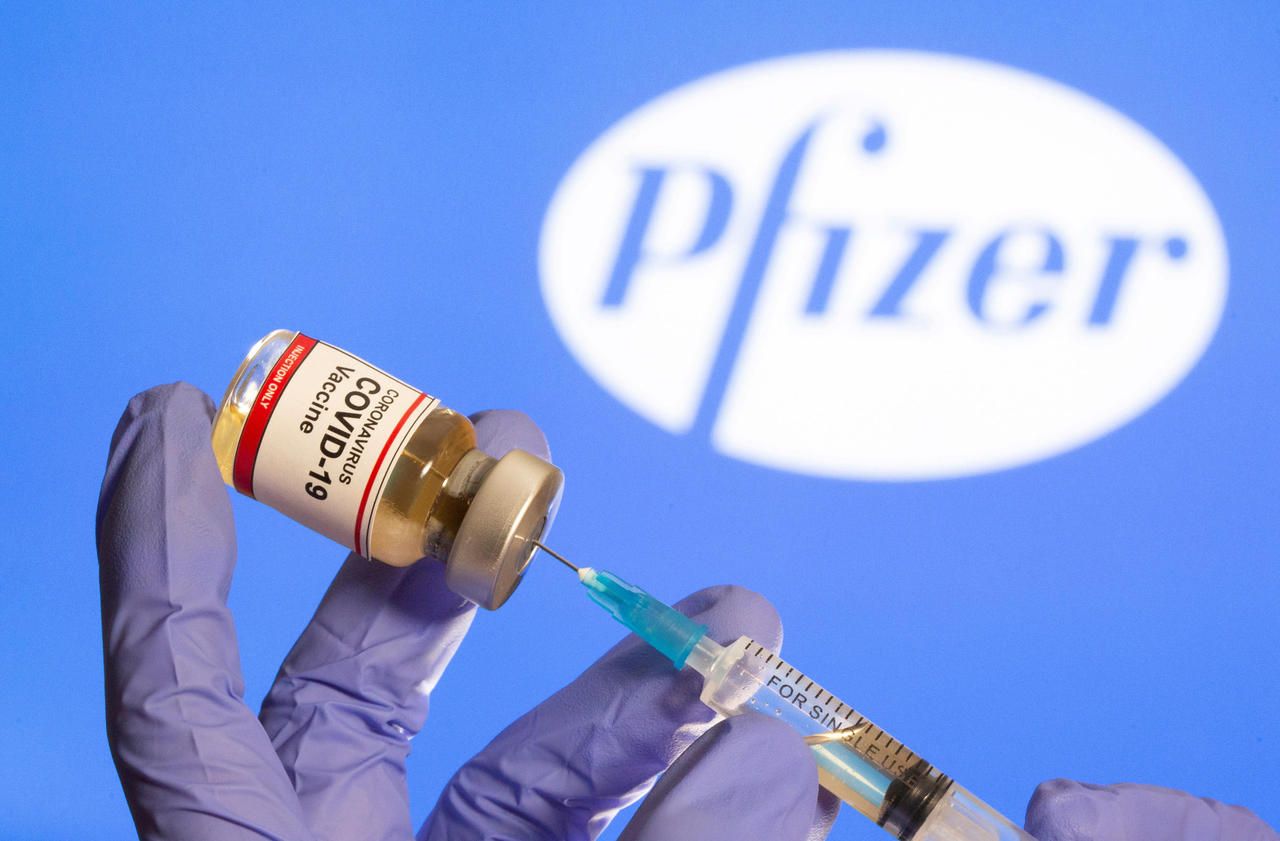Containment and re-containment could soon be behind us.
By announcing the effectiveness rate close to "90%" of a vaccine that they are currently testing against the new coronavirus, the Pfizer and BioNTech laboratories on Monday raised a wave of enthusiasm in the world, causing in particular a jump in European Union for the European Union.
It must be said that over much of the globe, the rates of Covid-19 infections are reaching record levels, hospital intensive care units are filling up and the number of deaths continues to increase.
In France, 270 deaths had been recorded in 24 hours, Friday, as well as 38,619 contaminations
In this context, any potential vaccine plays the role of the messiah likely to put an end to the pandemic.
To say with certainty that that of Pfizer and BioNTech will succeed, however, would be rushed.
To understand, it is necessary to compare the announcements of the two laboratories to the different phases of testing necessary to market a vaccine.
What have the two laboratories announced?
The American group Pfizer and the German BioNTech have jointly developed a vaccine which they believe could "prevent Covid-19".
To achieve this result, the two laboratories inoculated their treatment to healthy patients, while another group received a simple placebo.
In all, over 40,000 people participated in the test.
The operation was repeated 21 days later.
Seven days later, or 28 days from the first vaccination, they compared the number of people who fell ill with the coronavirus in each group.
These calculations made it possible to deduce a “vaccine efficacy rate of more than 90%”, when it is generally estimated that a rate of 60% to 70% would make it possible to stem the spread of the virus.
"More than eight months after the start of the worst pandemic in more than a century, we believe that this step represents a significant step forward for the world in our battle against Covid-19", rejoices the Chairman and CEO of Pfizer, Albert Bourla, in a statement.
Why is it far from won
But this press release “speaks of immunity obtained a little over a month after vaccination, points out the virologist Yves Gaudin, from the Institute for Integrative Cell Biology (I2BC) of Paris-Saclay.
It is still early to decide on lasting protection.
"
Even if this is the case, the effectiveness of the vaccine only allows access to the last mandatory phase of testing, the most important, which consists of ensuring the safety of the vaccine.
This should not cause either side effects known as "spontaneous", or complications in the event of new exposure to the virus: it happens that certain vaccines facilitate contamination or worsen symptoms, especially when the virus which the patient is facing has slightly evolved or transferred.
Newsletter - Most of the news
Every morning, the news seen by Le Parisien
I'm registering
Your email address is collected by Le Parisien to enable you to receive our news and commercial offers.
Learn more
VIDEO. Coronavirus mutation: 15 million mink slaughtered in Denmark
This certainty can only be acquired at the end of what is called “phase 3” of the tests, namely the massive release of the vaccine.
"If a problem occurs in one in 1000 cases, it is only detected on a large scale," notes the virologist.
When will the final results be known?
Driving the famous “phase 3” in a few months is not necessarily possible.
Side effects, especially with advanced forms of the virus, can occur years later, which is part of the reason people usually wait three to five years before launching a vaccine on the market.
"I do not think that we can compress a phase 3 and reduce it to less than a year: that would be a heresy", slice Yves Gaudin.
Obviously, the balance between benefit and risk varies in the population.
"For very old people, very vulnerable to the virus, a vaccine that would cause complications at a moderate frequency after a few years would probably be acceptable, imagines the virologist.
For young people, whose chances of dying from Covid-19 are minimal, this risk is not tolerable.
"
For their part, Pfizer and BioNTech state for now that they could provide up to 50 million doses of vaccines worldwide in 2020 and up to 1.3 billion doses in 2021.
Where are the other vaccines?
According to the World Health Organization (WHO), 10 clinical trials of vaccines are currently in phase 3 around the world, including those of the American biotech Moderna - based on the same technique of messenger RNA (the molecule tells cells what to manufacture), several Chinese state laboratories and the British AstraZeneca, in collaboration with the University of Oxford.
Pfizer and BioNTech are the first to release interim results from these trials.
No vaccine has yet received approval for large-scale commercial distribution.
But Chinese authorities have given the green light for emergency use for some of these vaccines.
READ ALSO>
"The manufacturing process will go very quickly"
In Russia, much of the political elite have said they have been vaccinated with the Sputnik V vaccine, which the government hopes to roll out massively in the coming months. The country submitted to the WHO at the end of October a request for prequalification of this vaccine, "registered" by the authorities in early August, which in Russia corresponds to the stage prior to the final phase of clinical trials. A second Russian vaccine was registered in mid-October.

